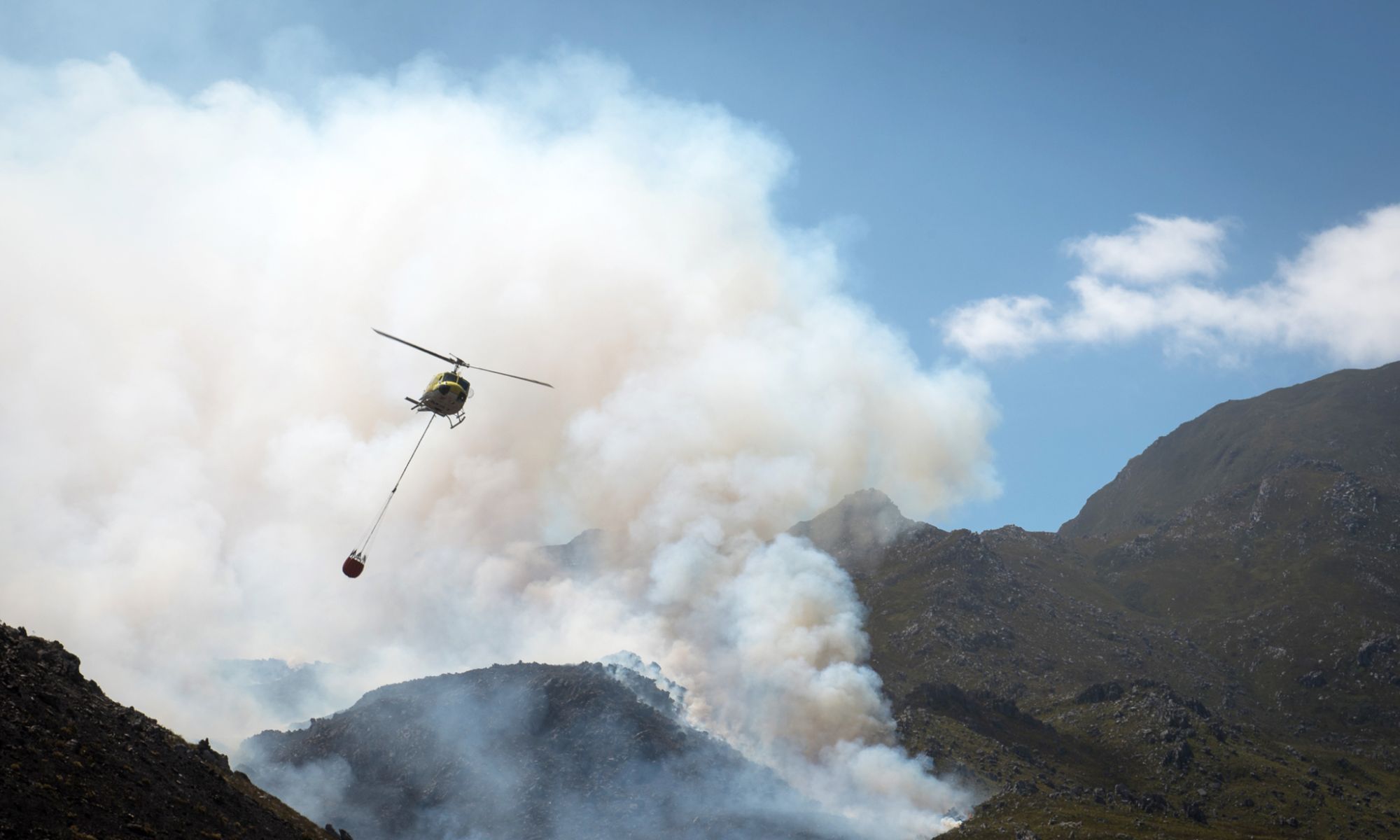
Fire awareness - BE THE HERO THIS SUMMER
The Western Cape is one of the areas most affected by veldfires where these are a natural phenomenon during the hot, windy, dry summers. This is exacerbated by infestations of alien vegetation and increased hot, dry periods as a result of climate change. As we enter fire season, CapeNature would like to urge the public to report any sign of fire or smoke quickly, and save lives, biodiversity and infrastructure in the process.
Reporting a fire quickly can mean the difference between minor damage and total devastation. Fires can be reported by dialling 112 from a cell phone or 10177 from a landline.
“In the rural areas in particular, where distances are greater for responders and early detection is at times difficult, the public are urged to report fires immediately. As fires grow, exponentially rapid response is essential to limit the extent of damage and costs of veldfires as well as risk to properties and lives. The sooner the fire brigade services, Fire Protection Associations (FPAs) and CapeNature, as a land owner can react, the better for the public, fire fighters and the environment”, says Peter Viljoen, Integrated Specialist: Disaster and Climate Response.
Natural fires are good for fynbos when the veld burns at the right season, interval and age, as fynbos is a fire driven ecosystem. This helps plants reproduce and ensures their long-term survival. However, if fires occur in the wrong season, too often, are too intense, too large or in the mountains, it will impact negatively on the ecosystem and individual species. Over the last 20 years there has been a steady increase in the number of human induced ignitions, as well as an increase in high fire danger days due to climate change, leading to an increase in number of fires and areas burnt.
Most uncontrolled fires start when people are careless. A fire may start small, but on a hot, dry day with some wind, it can destroy vegetation and property, and cause injuries and death. Prevention of fires is everyone’s responsibility and we need people to be vigilant, especially as the holiday season approaches and nature areas become more frequently visited.
Here are some tips for fire safety when visiting nature areas:
- Open fires are a common cause of uncontrolled fires in the Western Cape – so please don’t leave it unattended. Best is not to start a fire when it's hot, dry and especially not when it’s windy.
- Only use designated fire places and facilities - they're designed to contain your fire in a controlled space.
- Don’t allow your children to make a fire without adult supervision.
- Never leave a burning or smouldering fire unattended.
- Never use candles, matches or gas stoves in a tent; it can burn within minutes trapping its occupants inside.
- Place your tent upwind and well away from a fire.
- Have a large container of sand with a spade handy.
- When leaving a site or going to sleep, soak the fire with water and stir sand into the ashes or coals until every spark is out. Be careful of the hot steam and splashes when the water comes into contact with the coals.
- If hiking in the mountains and our reserves, particularly wilderness areas, do not make fires or burn your toilet paper.
- Be aware of the published fire danger index daily and adjust your activities to avoid creating a fire, for example, do not use welders or grinders, or any other equipment on a high fire danger index day.
- Only use fireworks in areas designated by the local municipality or other authority.
- Do not fire flares unless it is a valid emergency.
Most importantly, if a fire is not preventable, ensure that you have the emergency numbers handy so that you can report it quickly and dial 112 from a cell phone and 10177 from a landline.
Related News
How can I assist you today?
How can I assist you today?



